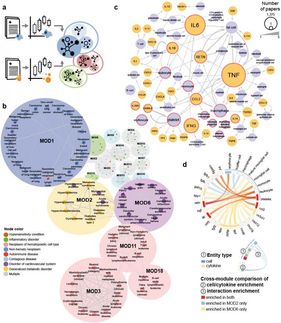Mainz and Freiburg immunologists discover immune system precursor cells that fight infection
Evidence presented of the existence of a previously unknown form of lymphocyte that protects against intracellular infection
Advertisement
The innate immune system recognizes infectious agents such as viruses and bacteria. A group of lymphocytes known as "innate lymphoid cells" or ILCs plays a central role in the defense of the human body against infective agents. Professor Andreas Diefenbach of the Research Center immunology at the Mainz University Medical Center, working in collaboration with scientists at the University of Freiburg, has discovered previously unidentified ILCs that are able to protect epithelial surfaces, such as those of the intestinal mucosa, against infection. The results provide important additional insights into how the immune system functions. It is also possible that these findings, recently published in the international journal Cell, could result in the development of new vaccination strategies that would prevent intracellular infections.
ILCs are among the most important weapons of the innate immune system and help it to fight infections and prevent the development of cancer. However, ILCs are not only of critical importance when it comes to preventing infections. They also have important functions in non-immunological processes, such as organ homeostasis, i.e., the maintenance of the physiological functional status of vital organs. Professor Andreas Diefenbach, Director of the Department of Medical Microbiology and Hygiene at the Mainz University Medical Center, has now identified a previously unrecognized ILC population. Specifically, he has been able to identify previously unknown precursor cells from which all types of ILCs may originate and to describe a new ILC subgroup called type 1 ILCs.
"The fact that we have found the potential precursor cell for all ILCs has opened up completely new horizons for research in the field of immunology. We now have a realistic chance of identifying the signals controlling differentiation of such precursor cells into each of the various ILC types," said Diefenbach. "If we understand how distinct types of ILCs are involved in the development of inflammatory bowel diseases and autoimmune disorders, we may be able to precisely suppress this unwanted programming of ILCs in the future." Diefenbach succeeded in detecting the unknown ILCs and the precursor cell at the molecular genetic level with the aid of fluorescent proteins.
"A healthy immune system is the key to preventing illnesses. So it is all the more important for us to obtain a comprehensive understanding of how the immune system operates. With this discovery, Professor Andreas Diefenbach and his team have made additional important progress in understanding the immune system in all its facets," stated the Chief Scientific Officer of the Mainz University Medical Center, Professor Ulrich Förstermann.

























































